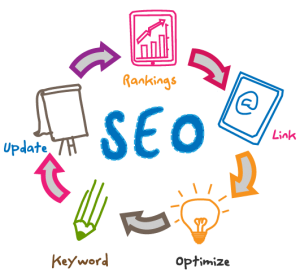When was the last time you “Googled” before making a purchase?
It is relatively effortless for everyone to acquire specific information on the internet right now. Consumers are often searching before making a purchase decision. Therefore, search engines are an important source of traffic to many websites nowadays. That traffic can be extremely powerful for a business not only because there is a lot of traffic, but because there is a lot of very specific, high-intent traffic. It is also important to note that Google is responsible for most of the search engine traffic in the world. Hence, if you are not seen easily online (on Google) and your online audience cannot find your website, the website is rather useless.
How does Google work its magic?
Google uses a software known as “web crawlers” to find web pages that are available for the mass public. The software has its own unique and complex algorithm (which we do not know exactly) to determine the pages to return in response to what people search for. However, there are basic rules the algorithm follow which we know.
- Google wants web pages includes high-quality and relevant information about the searcher’s query. Google can’t possibly return you results on orange juice when you are searching about apple juice.
- This is determined by “crawling” your web page’s content and classifying (using their specific algorithm) whether the content is relevant to the searcher’s query, usually based on the keywords it contain.
- The word “quality” is rather subjective. However, Google determine the quality of your web pages by a couple of methods and the most prominent method is the number and quality of other third party web sites that link to your web page and your website as a whole. If the only websites that link person A’s company selling apple juice are dead blogs (blogs that no one else has links to), and person B’s company selling apple juice gets links from trusted websites like hungrygowhere, ladyironchef and etcetera, person B site will definitely be more trusted and assumed to be of higher quality than person A.
Google Helps Your Consumers Find You but First Help Google Find You
Search engines are powerful, period. High ranking in Search Engines Result Page (SERP) can have a significant impact on search-driven traffic. Approximately 62% of search engine users click on the result in the first page results, and 90% within the first three pages.
To put it simply, Search Engine Optimisation acts as an adaptor or wire, connecting your webpages to the search engine. It allows your company to be seen easily online by improving your search engine ranking in the unpaid results section. By understanding how search engines work, what consumers search for, SEO helps to generate robust and search-friendly web pages that rank higher in search engines, attracting more probable consumers to your website and ultimately increasing conversion rates. In this way, consumers who are looking for you online will have an easier time and this helps to generate leads, qualify prospects and bring in potential new customers, partners or investors.


